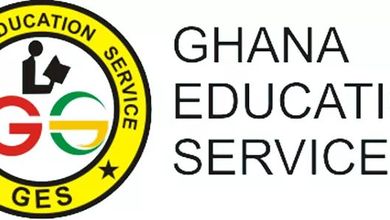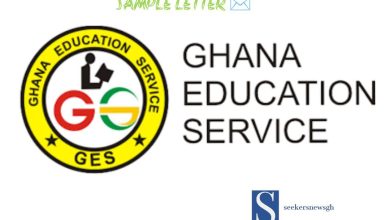NTC GTLE Chief Examiners Report on Essential Professional Skills
NTC GTLE Chief Examiners Report on Essential Professional Skills
REPORT ON ESSENTIAL PROFESSIONAL SKILLS (EPS) – 2021 GTLE 1
STRUCTURE OF THE PAPER
The paper had 60 multiple choice items with options for candidates to choose the best answer/option.
Items were based on the three domains of the National Teachers’ Standards
- Professional Values and Attitudes
- Professional Knowledge and
- Professional Practice
- Professional Values and Attitudes:
- professional development and
- community of practice
- Professional Knowledge:
- knowledge of students and
- knowledge of educational policies/reform education system and curriculum
- Professional Practice:
- managing the learning environment
- teaching and learning and
- assessment
GENERAL COMMENTS
- The item with the highest score was under Professional Values and Attitudes, compared to Teaching and Learning in the previous examinations
- The items with the lowest score were under Professional Values and Attitudes (Community of Practice) and Teaching and Learning
CANDIDATES STRENGTH
- Professional Values and Attitudes
(between 80% and 90% of candidates scored sampled items right)
- Community of practice:
- The teacher as a role model
(About 90% of candidates scored sampled item right)
- Professional Values and Attitudes
- Professional development
- Activities that promote reflective practice
(About 80% scored this item right)
Community of practice
The teacher as a role model
(About 90% of candidates scored this item right)
A teacher is always punctual to class, dresses well and looks neat. She is respectful to all learners and colleague teachers as well. The learners tell their parents that they want to be like their teacher. How would you describe this teacher with respect to the learners’ decision?
- A mentor
- A new teacher
- **A role model
- An experienced teacher
Community of practice: The teacher as a role model
(About 90% of candidates scored this item right)
A teacher is always punctual to class, dresses well and looks neat. She is respectful to all learners and colleague teachers as well. The learners tell their parents that they want to be like their teacher. How would you describe this teacher with respect to the learners’ decision?
- A mentor
- A new teacher
- **A role model
- An experienced teacher
Professional Knowledge:
- Knowledge of students with special needs: (About 70%)
- knowledge about learners’ growth and development: (65%)
A teacher complained to a headteacher of a school thus: I am tired of Kofi’s frequency of reporting his peers to me whenever class activities are in session. Please Sir, help me’. Which one of these suggestions would not be appropriate for the headteacher to make to the teacher?
- **Always pretend not to see him.
- Change the seating position.
- Investigate the cause of the problem.
- Recommend counselling for the peers.
Professional practice:
(between 70% and 80% of candidates scored sampled items right)
- Teaching and learning:
- Importance of stating learning outcomes/indicators – 83%
- Grouping learners according to abilities and learning needs – 79%
- Researching/investigating learners with peculiar behaviour, e.g. regular lateness, absenteeism, truancy, etc. – 74%
Sample item: Importance of stating learning outcomes/indicators – 83%
Classroom teachers write learning indicators in a lesson plan to ensure that A. learners can get notes to write at the end of the lesson.
- learners pay attention during instruction.
- **the main ideas of a lesson are brought out.
- the teacher exhausts all the lesson outcomes.
- Professional Values and Attitudes
- Community of Practice:
- Concepts associated with community of practice (11%)
- Strategies for involving parents and guardians in their children’s learning (19%)
- Professional Practice
- Teaching and learning
- Identifying appropriate resources for teaching integrated topics (11%)
- Appropriate strategies for using scaffolding to promote learning (12%)
- Managing the learning environment
- Strategies for promoting a positive classroom climate (13%)
- Assessment
- Appropriate assessment strategy for assessing perceptions and attitudes (16%). Sample item
Professional Values and Attitudes:
Concepts associated with community of practice (11% scored this item right)
A group of professional teachers normally comes together to share concerns and passion for the teaching profession and learn how to teach better. Which of the following phrases most appropriately describes these teachers?
- **Community of practice
- Community practitioners
- Professional practitioners
- Professionals of practice
Sample item
Professional practice: Teaching and Learning – Identifying appropriate resources for teaching integrated topics (11%)
A team of teachers is planning an interdisciplinary unit that will integrate English, Social Studies, Science and Fine Arts. They are meeting with the school librarian to discuss information resources for the unit. Which of the following resources would be the best to prepare them for the meeting with the librarian?
- A list of academic standards that will be addressed by the unit.
- A schedule for classes to conduct library research on unit topics.
- The instructional methods that will be used during the unit.
- **The overarching theme and guiding questions for the unit.
Sample item
Professional practice: Appropriate assessment strategy for assessing perceptions and attitudes (16%)
A teacher wants to assess learners’ perceptions and attitudes about learning. Which of the following assessments would provide the teacher with the most useful information in the area?
- Academic aptitude test
- **Anonymous self-report inventory
- Individual behaviour checklist
- Task-specific rubric
RECOMMENDATIONS
- Knowledge and understanding in the challenging areas should be deepened during pre-service training.
- The NTC should include the items that demonstrate candidates’ weaknesses in their framework as areas of concentration for CPD agencies.
- Teacher educators and CPD providers need to pay particular attention to the identified areas of candidates’ weaknesses outlined as follows:
- Community of Practice:
- Concepts associated with community of practice (11%)
- Strategies for involving parents and guardians in their children’s learning (19%)
. Professional Practice
- Teaching and learning
- Identifying appropriate resources for teaching integrated topics (11%)
- Appropriate strategies for employing scaffolding to promote learning (12%)
- Managing the learning environment
- Strategies for promoting a positive classroom climate (13%)
- Assessment
- Appropriate assessment strategy for assessing perceptions and attitudes (16%)
- Need to focus on informal type of assessment.
2022 GTLE
Candidates’ strengths
Table 3 shows the candidates’ strength in domains with high scores.
Table 3. Domains with high scores
| % Score | NTS Domain/Sub domain | Cognitive domain |
| 96 | Professional Values and Attitudes – Professional development | Knowledge and understanding – reasons for attending INSET |
| 93 | Professional Values and Attitudes: Community of practice – The teacher as an agent of change | Synthesis and evaluation |
| 92 | Professional Practice: Teaching and learning – promoting inclusive learning | Application |
| 91 | Professional Values and Attitudes: Community of practice – Promoting school/community relationship | Synthesis and evaluation |
| 87 | Professional Knowledge: Knowledge of students | Knowledge and understanding |
Sample items indicating candidates’ strengths
- Professional Values and Attitudes: Professional development – reasons for attending In-Service Education and Training activities (96% of candidates scored sampled item right)
- Cognitive domain: knowledge and understanding
Which one of the following will be the most significant reason for a teacher to attend a workshop on the use of teaching and learning materials? To
A.* acquire skills to develop learners’ interest in learning.
- develop knowledge on learners’ disruptive behaviours.
- receive promotion and salary increment.
- understand learners’ motive for school attendance.
- Professional Values and Attitudes: Community of practice – Promoting school/community relationship (The teacher as an agent of change: 93% of candidates scored sampled item right)
- Cognitive domain: synthesis and evaluation
Mr. Kunkuma has a passion for the teaching profession, and most often, gathers parents and talks to them about the relevance of education. Which of the following best describes Mr. Kunkuma’s behavior as a professional? Mr. Kunkuma
- *carries out his role as an agent of change within his social setting.
- creates an impression to the headteacher that he is hardworking.
- receives a lot of gifts from the parents within the community.
- wants the parents to know that he is the best teacher in the school.
- Professional Practice: Teaching and learning – promoting inclusive learning (92% of candidates scored sampled item right)
- Cognitive domain: application
During a Physical Education (P.E.) lesson where learners were playing football on the school field, a child with an amputated leg was asked to stand behind and watch his friends play. Which one of the following actions should the teacher have taken to make the child feel included? The teacher should have allowed him to
- go home to avoid hurting himself.
- * play another game that employs the hands.
- stay in the class and read his books.
- stay in the classroom to wait for his colleagues.
Candidates’ weaknesses
Table 4 shows the candidates’ weaknesses in domains with low scores.
Table 4. Domains with low scores
| % Score | NTS Domain/Sub domain | Cognitive domain | |
| 12 | Professional Practice – Teaching and learning | knowledge and understanding of concepts | |
| 16 | Professional Knowledge – Knowledge of students: most appropriate instrument a teacher can use to obtain information on learners | Synthesis and evaluation | |
| 21 | Professional Practice: Teaching and learning: handling students’ wrong responses | Knowledge and understanding and | |
| 23 | Professional Practice: Teaching and learning: planning lessons for learners with diverse backgrounds | Synthesis and evaluation | |
| 27 | Professional Knowledge: Knowledge of curriculum: reasons for introducing new curriculum | Knowledge understanding | and |
Sample items indicating candidates’ weaknesses
- Professional Practice – Teaching and learning: knowledge of concepts (88% of candidates scored sampled item wrong)
- Cognitive domain: knowledge and understanding
A teacher who can detect everything going on around him during classroom instruction demonstrates
- group control.
- personal skiils.
- *with-it-ness.
- Professional Knowledge – Knowledge of students: most appropriate instrument a teacher can use to obtain information on learners (84% of candidates scored sampled item wrong)
- Cognitive domain: synthesis and evaluation
- teacher wants to collect information on learners in a primary school to inform his teaching activities. Which of the following is the most appropriate instrument for him to use?
- Checklist
- *Interview
- Observation
- Questionnaire
- Professional Practice: Teaching and learning: handling students’ wrong responses
(79% of candidates scored sampled item wrong)
- Cognitive domain: knowledge and understanding
The best way a teacher can handle a wrong answer by a learner is to
- * call another learner to respond.
- explain why the answer is wrong.
- ignore the wrong answer.
- scold the learner.
Recommendations
- Teacher training institutions should address challenging cognitive domains by giving more exposure and practice to teacher trainees during pre-service, i.e.
- knowledge and understanding of concepts and
- synthesis and evaluation
NB: These cognitive domains were also the most challenging in the previous examination.
- Teacher educators and experienced teachers (mentors) should deepen teacher trainees’ knowledge of the challenging areas of the NTS domains during college/university training and mentoring during practicum respectively, i.e.
- Professional Practice: Teaching and learning
o Handling students’ wrong responses o Planning lessons for learners with diverse backgrounds
- Professional knowledge o Knowledge of students: Instruments a teacher can use to obtain information on learner
o Knowledge of curriculum: Reasons for introducing new curriculum
- Mentors/experienced teachers should be regularly exposed to the areas of candidates’ weaknesses for reinforcement during school-based engagements with mentees and beginning teachers.
- Teacher educators and CPD providers need to pay particular attention to the identified areas of candidates’ weaknesses outlined.
Source; NTC GTLE Chief Examiners Report






